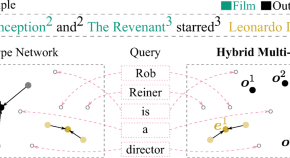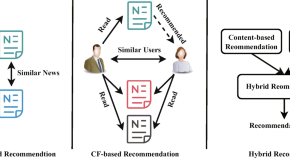Collection
Special Issue on Knowledge-Graph-Enabled Methods and Applications for the Future Web
- Submission status
- Closed
**n Wang, Tian** University, China, http://www.tjudb.cn/dbgroup/**n_Wang
Jeff Z. Pan, University of Edinburgh, UK, http://knowledge-representation.org/j.z.pan/
Qingpeng Zhang, City University of Hong Kong, Hong Kong, http://www.cityu.edu.hk/stfprofile/zhang.htm
Yuan-Fang Li, Monash University, Australia, https://users.monash.edu.au/~yli/
Knowledge Graphs (KGs) and related technologies have recently attracted significant attention from both academia and industry in scenarios that require sharing, managing, and exploiting knowledge from diverse sources of data on the Web. The growing publication and utilization of open and enterprise KGs, such as DBpedia, Freebase, Wikidata, YAGO, Google Knowledge Graph, Microsoft Satori, Facebook Entity Graph, Amazon Product Graph, and others, have prompted emerging research efforts on investigating how KGs can be leveraged to realize more knowledgeable techniques and applications for the next-generation Web. However, the existing approaches face a number of challenges on develo** KG-enabled technologies. Firstly, there is still a lack of widely recognized theories and practices for employing KGs in designing and implementing Web applications. Secondly, despite the recent progress of KG embedding techniques, KGs have not yet been well integrated with existing AI methods to achieve knowledgeable Web systems. Thirdly, a unified mechanism remains to be developed to guide users on how to effectively interact with KG-enabled applications on the Web.
Aims and ScopeThis special issue aims to establish a forum for the dissemination of recent high-quality research advances from worldwide scholars to address the challenges in knowledge-graph-enabled methods and applications for the future Web. Existing studies on KGs mainly focus on either the traditional direction of knowledge engineering or the model aspect of knowledge representation learning. Currently, there are few research works that are devoted to how the stack of knowledge engineering approaches can be more effectively and efficiently integrated with machine learning approaches to overcome key issues including accuracy, efficiency, explainability, and knowledgeability. Thus, this special issue will encourage researchers to pay more attention to the significant gap and deliver practical contributions. Therefore, this special issue will focus on emerging methods and advance applications that are KG-enabled for the future Web.
Topics of InterestTopics of interest of this special issue include but are not limited to:
--KG-enabled embedding and representation learning
--KG-enabled knowledge engineering
--KG-enabled neural network and deep learning
--KG-enabled multimodal methods and systems
--KG-enabled natural language processing
--KG-enabled question answering systems
--KG-enabled recommendation systems
--KG-enabled explainable AI
--KG-enabled data mining and analysis
--KG-enabled Web information systems
--KG-enabled Web applications
--KG-enabled Web 3.0
Submission GuidelinesAuthors are encouraged to submit high-quality, original work that has neither appeared in, nor is under consideration by, other journals. Springer offers authors, editors and reviewers of World Wide Web Journal a web-enabled online manuscript submission and review system. Our online system offers authors the ability to track the review process of their manuscript. Manuscripts should be submitted to: http://wwwj.edmgr.com. This online system offers easy and straightforward log-in and submission procedures, and supports a wide range of submission file formats.
Important DatesSubmission due: 1st October, 2022
First review notification: 1st December, 2022
Revision due: 20th February, 2023
Final Decision: 20th March, 2023
Author ResourcesAuthors are encouraged to submit high-quality, original work that has neither appeared in, nor is under consideration by other journals. All papers will be reviewed following standard reviewing procedures for the Journal. Papers must be prepared in accordance with the Journal guidelines: www.springer.com/11280 Springer provides a host of information about publishing in a Springer Journal on our Journal Author Resources page, including FAQs, Tutorials along with Help and Support.
Editors
-
**n Wang
**n Wang, Tian** University, China, http://www.tjudb.cn/dbgroup/**n_Wang
-
Jeff Z. Pan
Jeff Z. Pan, University of Edinburgh, UK. http://knowledge-representation.org/j.z.pan/
-
Qingpeng Zhang
Qingpeng Zhang, City University of Hong Kong, Hong Kong, http://www.cityu.edu.hk/stfprofile/zhang.htm
-
Yuan-Fang Li
Yuan-Fang Li, Monash University, Australia, https://users.monash.edu.au/~yli/
Articles (10 in this collection)
-
-
Contextual semantic embeddings for ontology subsumption prediction
Authors (first, second and last of 6)
- Jiaoyan Chen
- Yuan He
- Ian Horrocks
- Content type: OriginalPaper
- Published: 02 May 2023
- Pages: 2569 - 2591

-
Few-shot named entity recognition with hybrid multi-prototype learning
Authors (first, second and last of 4)
- Zenghua Liao
- Junbo Fei
- **ang Zhao
- Content type: OriginalPaper
- Published: 13 April 2023
- Pages: 2521 - 2544

-
DIRS-KG: a KG-enhanced interactive recommender system based on deep reinforcement learning
Authors (first, second and last of 6)
- Ronghua Lin
- Feiyi Tang
- Yong Tang
- Content type: OriginalPaper
- Published: 01 April 2023
- Pages: 2471 - 2493

-
Efficient maintenance of highway cover labelling for distance queries on large dynamic graphs
Authors
- Muhammad Farhan
- Qing Wang
- Content type: OriginalPaper
- Open Access
- Published: 22 March 2023
- Pages: 2427 - 2452

-
Generative adversarial network for unsupervised multi-lingual knowledge graph entity alignment
Authors (first, second and last of 5)
- Yunfei Li
- Lu Chen
- Jianxin Li
- Content type: OriginalPaper
- Open Access
- Published: 11 February 2023
- Pages: 2265 - 2290

-
Cross-platform product matching based on entity alignment of knowledge graph with raea model
Authors (first, second and last of 11)
- Wenlong Liu
- Jiahua Pan
- Qingpeng Zhang
- Content type: OriginalPaper
- Published: 02 February 2023
- Pages: 2215 - 2235

-
EAGS: An extracting auxiliary knowledge graph model in multi-turn dialogue generation
Authors (first, second and last of 4)
- Bo Ning
- Deji Zhao
- Guanyu Li
- Content type: OriginalPaper
- Published: 30 September 2022
- Pages: 1545 - 1566

-
Towards multi-dimensional knowledge-aware approach for effective community detection in LBSN
Authors (first, second and last of 4)
- Dazhao Xu
- Yunliang Chen
- Jianxin Li
- Content type: OriginalPaper
- Published: 14 September 2022
- Pages: 1435 - 1458

-
FTMF: Few-shot temporal knowledge graph completion based on meta-optimization and fault-tolerant mechanism
Authors (first, second and last of 4)
- Luyi Bai
- Mingcheng Zhang
- Heng Zhang
- Content type: OriginalPaper
- Published: 04 August 2022
- Pages: 1243 - 1270



